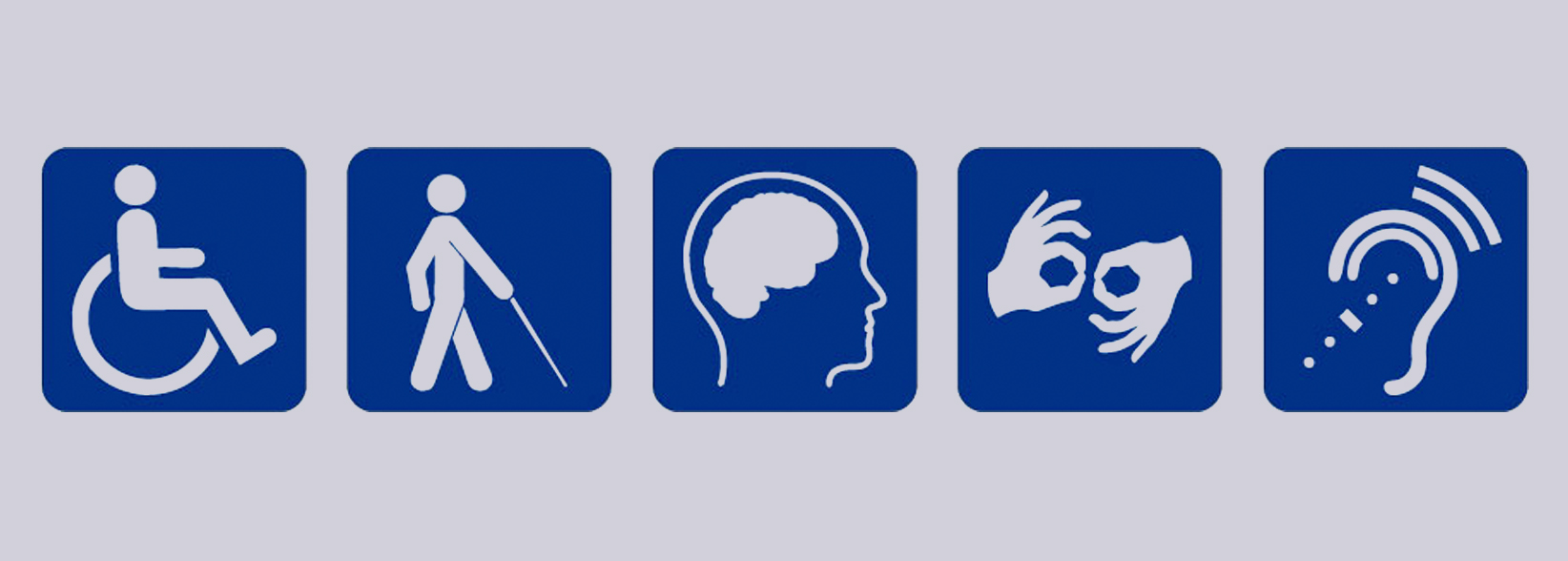Functional Needs
For People with Disabilities and those with Access and Functional Needs
An estimated 15% of the world’s population live with some form of disability. Evidence gathered from previous worldwide events shows that people with disabilities are disproportionately affected in emergency situations and the occurrence of natural disasters.
Emergencies can reduce the capacity of caregivers to provide for and support people with disabilities and the vulnerability of children and older people with disabilities becomes even more acute during emergencies.
How would a disaster impact your daily life?
- What can you do independently and where may you need assistance?
- Will your regular sources of assistance be available after a disaster?
- What if power, gas, and phone lines are not working?
- What if roads and footpaths are impassable or your means of transportation is unavailable?
- How will you maintain supplies of water, food, medications, and your other needs?
Note: The content on this page is specially adapted for people with disabilities, access and functional needs, as well as advice for their caregivers. It is deigned to be used in addition to the information provided as part of the Community Emergency Management Plan to help you plan for the additional challenges you may face in an emergency situation.
Prevent
Secure Your Space
Identify hazards and secure moveable items
- When you enter a room, building or public space for the first time, take a moment to look for safe places to protect yourself should an emergency situation happen
- Safe spaces are places where heavy or falling objects, debris and breaking glass will not injure you, such as under tables or desks along inside walls.
The more limitations you have, the more important it is to create safe spaces for yourself:
- Create safe spaces by securing heavy furniture and moving heavy items to low shelves in your cupboards
- When not in use secure essential equipment such as oxygen tanks or other life support devices, so they will not fall, sustain damage, or cause injury.
Plan to Be Safe
Create a disaster plan and decide how you will communicate in an emergency
- Assess your own limitations and capabilities realistically
- Include your family, friends and carers when creating and practicing your plan
- Ensure that you inform three people who are within walking distance (and would be able to assist you immediately) of the details in your plan
- Share the details of your plan with people at home, work and in places where you spend a lot of time
- Make sure the people you tell know how to enter your home in case you cannot answer the door.
- Make sure your friends and family knows your schedule, your needs and how to operate any equipment.
Have an evacuation plan
- Identify a meeting place just outside your home where you can make sure everyone has gotten out safely. Identify a second meeting place outside of your street in case you cannot return home. Share this information with your family members and friends.
- If you live or work near a beach, large lake ensure you plan to move out side of the flood zone
- Make a care plan for your pets as they might not be allowed in some shelters. Contact Port Adelaide Council or the RSPCA if you have any concerns with pet sheltering in an emergency.
Prepare
Organise your Disaster Supplies
To prepare for an emergency situation make a list of equipment and medication you may need if you had to leave your home, store spare sets labelled with your name and contact information in your disaster supplies kit where possible (See our guide in the links section)
In addition to the standard emergency kit you may need to consider the inclusion of:
- Documentation containing specific medical information about your needs
- Write down name, address and phone numbers of your doctor
- A list of any medication you normal take (include a chart which shows the time you take each medication)
- Emergency contact information of a friend or family member
- Supplies for your specific to your needs:
- Hearing aid batteries
- Eye glasses,
- Walking stick
- Oxygen or nebulizer supplies
- Blood glucose tester
- Specialised equipment
- Hygiene and catheter supplies,
- Feeding equipment
- Service animal/pet owners will need to make a kit containing supplies for these animals.
For more information about service animal preparedness visit the RSPCA website.
People with developmental/cognitive/intellectual disabilities:
- Ensure you have a written or visual checklist with short, easy steps
- Include communication tools in your kit that you know how to use. People who are nonverbal can include pictures or written phrases for easier communication
- Practice your plan. Regular practice will help you to remember what to do and to remain calmer if a disaster occurs
- Practice telling care assistants and responders how to communicate with you, such as using simple, short, and clear language for instructions.
People who are deaf or hard of hearing:
- Have more than one method to receive warnings and evacuation information
- Store extra batteries in your disaster kits for your hearing or communication devices
- Keep pen and paper in your kits for receiving and communicating information
- Ask a friend or family member to keep you up to date on emergency information as it is released.
People who are blind or visually impaired:
- Check your environment some events can cause items to fall and furniture to shift making navigating the room more difficult
- Be aware that sound clues may not be available
- While evacuating move slowly and check for obstacles in the way. Shuffling your feet when there is a lot of debris on the ground will reduce your likelihood of falling
- Store extra canes, batteries and supplies for your communication devices
- Label emergency supplies using large print, fluorescent tape or Braille.
Respond
What to do in an event:
Below you will find some advice for specific types of emergency:
Flood:
People with Disabilities and Others with Access and Functional Needs will usually require special assistance as they may be dependent on the help of others to prepare their properties and help them to evacuate if required. Some tips specific to your flood action plan follow:
- Have ready the contact details of a family member, friend or neighbour who could physically help if required which could be given to council or emergency workers.
- Have your mobility items close at hand.
- If you voluntarily evacuate ensure you tell a family member or friend.
- Remember in an ordered (planned) evacuation take only those items essential to your needs. Travel as light as possible.
Storm:
Register with the local emergency services organisation if you require evacuation assistance, and/or special shelter facilities. Register with Council if you require the help of others to prepare your properties for a storm (e.g. Sandbagging).
- Be aware of your individual warning, evacuation, and sheltering needs.
- When early storm warnings are issued ensure the batteries are charged on your medical equipment.
- For those who depend on power for equipment or refrigeration, have a back-up power supply (generator, power inverters, charged batteries, even an adapter plug for vehicle lighter).
- For devices that use batteries, stock extra batteries.
- Maintain stocks of supplies, equipment, and medications which may be required for a minimum of three days in a shelter.
Human Disease:
To people with disabilities an outbreak of pandemic flu or other infectious disease can be a real threat to wellbeing. Some tips specific to plan for Human Disease outbreak follow:
- Get your annual immunisations. Additional vaccines are recommended for adults with medical risk factors.
- During an outbreak or pandemic limit contact with others to only those people you need to care for you.
- Where possible Avoid the sharing of devices or equipment used for your daily care.
- The flu is spread by coughing, sneezing and touching items that have been in contact with a sick person. Prevent the spread of germs on shared items by cleaning them thoroughly.
- Find ways to de-stress yourself and keep yourself healthy;
- Regular exercise
- Meditation
- Eat nutritious foods
- Drink 8 glasses of water a day
Animal and Plant Disease:
There are no additional requirements or extra measures for People with Disabilities and Others with Access and Functional Needs with regard to Plant Disease so please follow the advice given on our Animal and Plant disease page.
Below is some advice for those with service or support animals in case of Animal disease outbreak:
- Keep license and ID tags on service animals at all times.
- Keep copies of any service animal certification or documentation including immunization records, medications, and veterinarian’s contact information
- Be prepared to use alternate equipment if your animal cannot provide its normal services.
- Don't move animals onto or off of your property
- Look out for these symptoms in your animal:
- Sores, ulcers or excessive dribbling from the mouth
- large discharges from any orifice such as the nose or diarrhoea,
- not eating properly or off their feed
- non-responsive
- staggering or swollen or drooping head
- severe lameness or inability to rise
- Report serious or unusual symptoms or behaviour to your local vet
- Notifiable diseases are animal diseases that are a national threat, and by law must be reported. The PIRSA website provides Information required for reporting.
For more information Visit the PIRSA website or outbreak.gov.au for the latest on pest and disease outbreaks in South Australia.
Earthquake:
The greater your limitations, the more critical it is to create safe spaces in advance.
- Do NOT try to exit a building during an earthquake as you are likely to be injured from falling debris.
- Protect yourself from falling objects in the safest place possible near where you are.
- If you are in a recliner or bed: do not try to transfer during the shaking. Cover your head and neck with your arms or a pillow until the shaking stops
If possible:
Adapt for your situation:
Recover
After an event check your environment
After an event such as a storm, flood or earthquake you surroundings may have changed:
- Check yourself for injury; pay extra attention to areas where you may have reduced sensations.
- Do not wait for an official warning before moving to a safe place
- Evacuate only if necessary
- Take any immediate action to prevent further injury
- Check your environment for hazards such as broken glass and objects in your way
- Furniture may have shifted and sound cues may not be available to individuals with visual disabilities.
- Your service animal may be frightened or injured and may not be able to work after an event. There is also increased risk of injury to their paws debris on the ground.
- Contact your support group, carer family and friends as soon as practical
Additional Resources
Emergency respite care
If you are unable to look after the person for a while (for example, you have to go to hospital or have another situation that you need to manage), and there is no one else who can step in, emergency respite care may have services available.
Call your local Commonwealth Respite and Care link Centre on 1800 052 222 for information about available services in your area
If you cannot return home
The Department of Human Services
The SA Housing Authority Department can assist with accommodation in crisis situations. The department brings together a range of services and policies designed to support vulnerable people and to help build resilient communities. More information can be found on these services can be found on the SA Gov website.
This department also offers a large number of services designed to assist you in recovering from an emergency situation including relocation and displacement advice, information on Volunteering and support to replace documentation. Find out more about how they can help you by visiting their Disaster Recovery website Disaster Recovery website.
Other offerings provided include Youth Justice, Disability and Reform, and Community and Support services.
The Department of Human Services and the RSPCA work together to support pet welfare. Ask to speak to the Animals Matter Coordinator based at the following DCSI offices:
(08) 8366 7333 (East)
(08) 8348 6000 (West)
(08) 8366 7300 (North)
Further information on Disability Support
SA Government - Disability information A-Z


